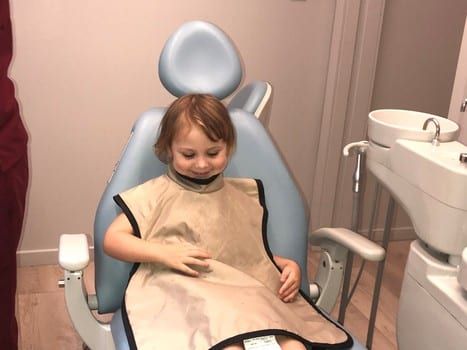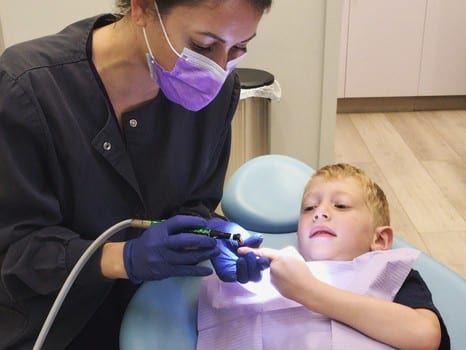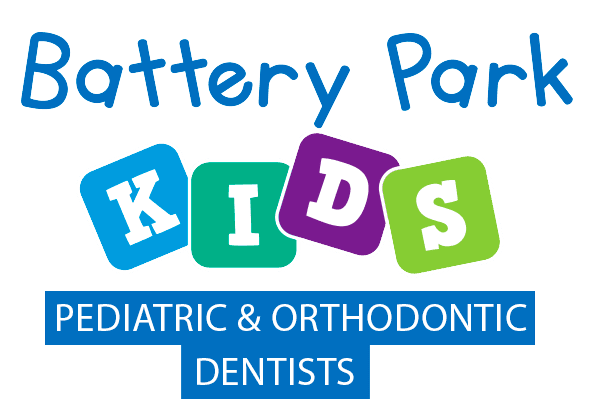Are Dental X-Rays Safe For My Child?

When you take your child to the dentist for a checkup, the doctor may prescribe X-rays. Dental X-rays (radiographs) can be a great tool, providing a way to see inside the tooth and evaluate the areas underneath the gums. Radiographs are important for the dentist to diagnose cavities, assess growth and development, detect missing or extra teeth, and look for infections or pathology.
Parents often express their concerns to me about the use of radiographs on their children because of the link of radiation exposure to cancer. This is a legitimate concern. Children are more radiosensitive than adults, and this is considered with every X-ray exposure performed in our office. However, in recent years X-ray technology has vastly improved, and the amount of radiation exposure required to take dental radiographs is now very small. To put this in perspective, consider the fact that every human is exposed daily to naturally occurring background radiation. The amount of radiation exposure of 4 dental bitewing radiographs is less radiation than one days worth of background exposure, or about equal to spending one hour flying in a plane. (1) In addition, lead aprons and thyroid collars are always used to further limit a patient’s exposure. So while the risk is there, it is small enough that in many cases the benefits of the X-ray exposure outweigh the risks.
In order to minimize exposure, we evaluate each child on an individual basis while following the recommendations of The American Academy of Pediatric Dentists, FDA regulations, and radiation safety principles. The decision to obtain radiographs is based on several factors, including the child’s caries risk factor (an individualized measure for assessing each child’s likelihood of developing cavities), tooth crowding, age, and history of trauma. On average, radiographic exams begin when a child reaches about 5 years old.
As your child grows older and permanent teeth erupt, the spaces between his or her teeth closes. It is very important to take radiographs periodically to detect any cavities growing between the teeth since these areas cannot be visualized otherwise. It is best not to wait until these cavities can be seen without X-rays because that usually indicates a more serious problem that requires more involved treatment. When cavities are detected early with radiographs, treatment can be much less invasive. For example, when I find small “incipient” lesions in our office, I typically first recommend special non-invasive treatments that promote healing of the tooth as opposed to placing a filling.
Dental X-rays can be useful in keeping your child’s mouth healthy and pain-free. If you ever have concerns about taking X-rays, ask your dentist to discuss the risks and benefits at your child’s next visit so you can make an informed decision. And remember, since patients at a low risk for cavities typically require the fewest X-rays, the best way to keep X-ray exposures at a minimum is to focus on prevention and see your dentist every 6 months.
(1) 1. American Nuclear Society. Radiation dose chart. Accessed Aug. 2, 2011.
About Dr. Roxanna Khajavi, Pediatric DMD
Dr. Roxanna Khajavi is a pediatric dentist, but beyond that, she loves what she does. She believes the first experience any child has in a dental office needs to leave a special mark in their mind and in their hearts. This is the reason she became a dentist. Dr. Khajavi strives to make sure that all her patients have a wonderful experience. She says, “The dentistry part is easy, but making your children laugh and smile while under my care, has never been an obstacle! Our mission is to make sure every child feels like they are surrounded by a team who truly cares about their experience. To us, every patient is more than just a “patient”, each child is family.”
About Battery Park Pediatric Dentists
Battery Park Pediatric Dentists proudly provides quality pediatric dental care to the community of New York and surrounding areas. Their office specializes in dentistry for infants, children, and adolescents. Their services include preventative children’s dentistry, oral hygiene and maintenance, management of growth and development, conscious sedation, comprehensive orthodontic treatment and much more.
First Visit To The Dentist

In the first year of his or her life, your new baby will be growing fast and reaching new milestones every day. One of the changes you will see is the first teeth coming in when your baby is 6-8 months old. To ensure a lifetime of good oral health, it is important to begin caring for your child’s teeth from day one.
Around the time of the eruption of your baby’s first teeth, an appointment to see a dentist should be made. The American Academy of Pediatric Dentistry and the American Academy of Pediatrics recommends your child’s first dental visit should occur by his or her first birthday. Early establishment of a dental home has been shown to reduce the likelihood of additional dental treatment (such as fillings, crowns, and extractions) and is associated with a lower overall cost of dental treatment.
The first dental visit is intended to be educational for the parent and short and sweet for the child. The parent and child will sit together in the chair, while a stuffed animal or a puppet is used to demonstrate to the child how the teeth will be counted and brushed. Using gentle guidance, the child’s mouth and teeth will then be examined and cleaned, and the dentist will discuss with the parent techniques for home care, diet, and what to expect as the child grows. Depending on the child’s age and dental needs, x-rays may be taken. If the child requires any additional treatment, the treatment plan and any alternative treatment options will be discussed in detail with the parent.
Look for a pediatric dental office that will make your child’s visit comfortable and enjoyable for your child. Most offices have child-friendly waiting rooms with toys, entertainment, and “prizes” rewarded at the end of the visit, and are specifically designed to accommodate young patients and children with special needs. Prior to your first appointment, you may wish to visit the office to meet with the staff, see the facilities, and ask any pertinent questions. Be sure to let the office know in advance if your child requires any special considerations or has any special health care needs, and be prepared to answer questions about the child’s medical history and any medications your child is taking.
Some children may be fearful about their first visit, especially if they have heard stories from older siblings or friends. Discuss with them ahead of time what to expect (the teeth will be counted, a soft spin brush will clean the teeth, a prize will be given at the end, etc), and consider reading a book about a trip to the dentist to help alleviate any fears. Don’t hesitate to call your dentist for any additional pointers.
Staying on top of your child’s oral health and getting checkups every six months will help make visits to the dentist fun and easy for the child. Working with your pediatric dentist, your child will grow into a healthy young adult with an appreciation for oral health.
About Dr. Roxanna Khajavi, Pediatric DMD
Dr. Roxanna Khajavi is a pediatric dentist, but beyond that, she loves what she does. She believes the first experience any child has in a dental office needs to leave a special mark in their mind and in their hearts. This is the reason she became a dentist. Dr. Khajavi strives to make sure that all her patients have a wonderful experience. She says, “The dentistry part is easy, but making your children laugh and smile while under my care, has never been an obstacle! Our mission is to make sure every child feels like they are surrounded by a team who truly cares about their experience. To us, every patient is more than just a “patient”, each child is family.”
About Battery Park Pediatric Dentists
Battery Park Pediatric Dentists proudly provides quality pediatric dental care to the community of New York and surrounding areas. Their office specializes in dentistry for infants, children, and adolescents. Their services include preventative children’s dentistry, oral hygiene and maintenance, management of growth and development, conscious sedation, comprehensive orthodontic treatment and much more.

